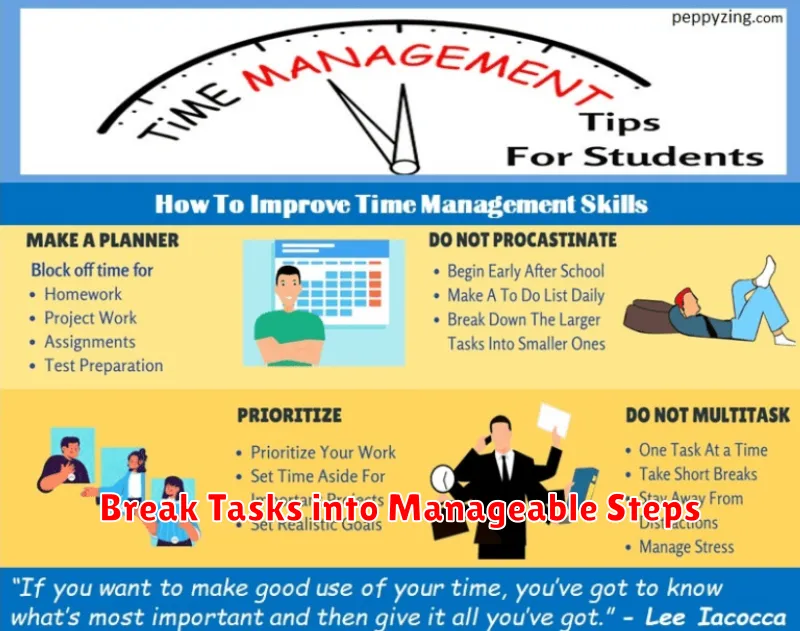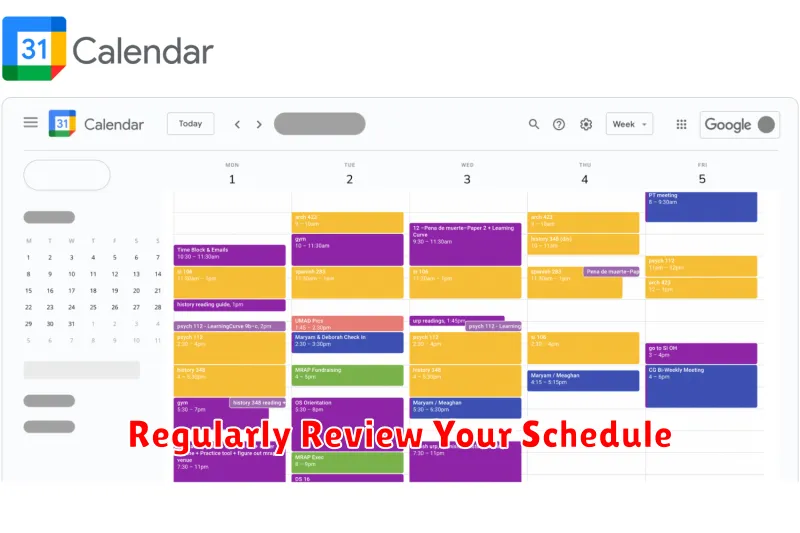College life presents a unique challenge: balancing academics, social life, extracurricular activities, and often, part-time jobs. Effective time management is crucial for busy college students to navigate these demands successfully. This article provides practical time management tips to help students not only survive but thrive in their academic pursuits. Mastering the art of time management allows students to reduce stress, improve academic performance, and enjoy a more fulfilling college experience. Learn how to effectively allocate your time and prioritize tasks for optimal success.
From prioritizing study schedules to leveraging productivity techniques, these strategies offer valuable insights into maximizing your time. Discover how to create a realistic study plan, utilize time management tools, and avoid common pitfalls. Whether you’re struggling to meet deadlines, feeling overwhelmed by your workload, or simply seeking ways to improve your time management skills, this guide will equip you with the essential tools for success as a busy college student. Explore these practical time management tips and unlock your full potential.
Prioritize Your Tasks
One of the most crucial time management skills is prioritization. Identify your most important tasks and tackle them first. This often means focusing on assignments with the closest deadlines or the greatest impact on your overall grade.
Use a system to categorize your tasks. A simple method is to label tasks as High, Medium, or Low priority. You can also use a planner or to-do list app to visually organize your tasks and deadlines.
Remember to be flexible and re-prioritize as needed. Unexpected events or new assignments might require you to shift your focus.
Use Effective Planning Tools
Effective time management in college requires utilizing planning tools. Calendars, whether digital or physical, are essential for tracking deadlines, appointments, and classes. Inputting all your commitments helps visualize your schedule and prevents overlapping activities.
To-do lists are equally crucial. Break down large assignments into smaller, manageable tasks. Prioritize these tasks based on importance and due dates. Checking off completed items provides a sense of accomplishment and motivates further progress.
Explore various digital apps designed for student planning. Many offer features like task management, deadline reminders, and even collaboration tools for group projects.
Create a Realistic Schedule
A well-structured schedule is the cornerstone of effective time management. However, a schedule is only useful if it’s realistic. Don’t overschedule yourself. Be honest about how much time you truly have and how long tasks actually take.
Factor in breaks, travel time, and unexpected delays. A tightly packed schedule with no room for error is a recipe for stress and missed deadlines. Prioritize your tasks and allocate sufficient time for the most important ones.
Consider using a planner, calendar app, or even a simple spreadsheet to visualize your schedule. Review and adjust your schedule regularly to ensure it continues to align with your priorities and workload.
Break Tasks into Manageable Steps

One of the most effective time management strategies is breaking down large, daunting tasks into smaller, more manageable steps. This approach combats procrastination and promotes a sense of accomplishment as you complete each step.
For example, instead of viewing “Write a research paper” as a single, overwhelming task, break it down. First, research your topic. Then, create an outline. Next, write a first draft. After that, revise and edit. Finally, create the final version.
This process makes the overall project feel less intimidating and allows for better time allocation and progress tracking.
Avoid Procrastination Strategies
Procrastination is a common struggle for college students. Breaking down tasks into smaller, more manageable chunks can make them seem less daunting. Creating a realistic schedule and sticking to it is also crucial. This includes allocating specific time slots for studying, assignments, and breaks.
Prioritizing tasks is another key strategy. Focus on completing the most important or urgent assignments first. Eliminating distractions such as social media and email notifications can greatly improve focus and productivity. Finding a dedicated study space free from interruptions can also be beneficial.
Balance Study and Leisure
College life presents a significant challenge: balancing academic pursuits with personal time. Effective time management is crucial for achieving this balance. It’s easy to become overwhelmed with coursework, but neglecting leisure activities can lead to burnout and decreased productivity.
Schedule specific times for both studying and leisure. Treat study sessions like appointments. Similarly, allocate time for activities you enjoy, whether it’s exercising, socializing, or pursuing hobbies. This structured approach helps ensure you dedicate time to both aspects of your well-being.
Prioritize tasks. Identify your most important academic tasks and tackle them first. This allows you to dedicate focused effort to critical assignments and frees up time later for leisure activities without guilt or worry.
Utilize Campus Resources
College campuses offer a wealth of resources designed to support student success. Take advantage of these offerings to streamline your academic life and manage your time effectively. Academic advising can help you choose the right courses and plan your academic path efficiently. Tutoring services provide individualized support in challenging subjects, saving you valuable study time. Writing centers can assist with crafting polished papers and essays, minimizing revision time.
Don’t overlook the benefits of the library. Beyond research materials, libraries often provide quiet study spaces and helpful workshops on research and information management skills. Time management workshops offered by student services can equip you with practical strategies for prioritizing tasks and maximizing productivity.
Set Clear Goals and Deadlines
Effective time management hinges on establishing clear, achievable goals. Begin by identifying your priorities. Ask yourself: What needs to be accomplished this semester? This week? Today?
Once you have a grasp of your priorities, translate them into specific, measurable, achievable, relevant, and time-bound (SMART) goals. For example, instead of “Study for history,” reframe it as “Read chapters 4 and 5 of the history textbook by Friday at 5 PM.”
Setting deadlines for these goals is crucial. This creates a sense of urgency and helps you stay on track. Record your goals and deadlines in a planner, calendar, or digital task management tool.
Stay Flexible and Adapt
College life is rarely predictable. Unexpected events, from surprise quizzes to club meetings running late, can throw off even the most carefully planned schedule. Cultivating flexibility is crucial for effective time management.
Build in buffer time between tasks. A 15-minute gap can provide the flexibility needed to accommodate unforeseen delays. Don’t over-schedule your day. Leave some free time to adjust to changes and avoid feeling overwhelmed.
Be prepared to re-prioritize tasks when necessary. If a more urgent assignment arises, be willing to shift less important tasks to later. This adaptability will help you stay on top of your workload and minimize stress.
Regularly Review Your Schedule

A well-structured schedule is only effective if you actively use and adapt it. Regular review is crucial for successful time management. Set aside time each week, or even daily, to examine your schedule.
Look for potential conflicts, over-scheduling, or areas where you can consolidate tasks. Identify time wasted on less important activities and consider how that time could be repurposed for studying, assignments, or even much needed rest.
This consistent review process allows you to stay on track, anticipate challenges, and adjust your schedule as needed to maintain a healthy balance and maximize productivity.

